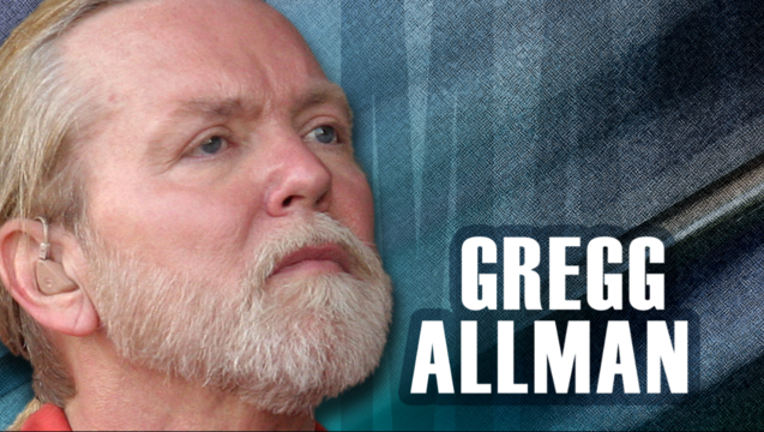A fan remembers Gregg Allman's life-affirming sound

The Associated Press
NEW YORK (AP) - The stage remains dark in the moments before the final show. It's the Allman Brothers' annual New York City Beacon Theater run, in March 2011.
Across the twilight, the first clear notes of "Hot 'Lanta" rise from Gregg Allman's Hammond B3 keyboard. Stage lights come up as the organ's tremolo fills the hall. Drums, percussion and bass join in, twin lead guitars launch over the top and an enormous driving rhythm floods the room, penetrating me to the bone.
For myself and so many others who followed the band over the years, going to an Allman Brothers concert was a full-throttle, life-affirming experience. The muscular, bluesy jam-anthems -- "Midnight Rider," ''Statesboro Blues," ''Stormy Monday" -- lit up packed houses in torrential, soulful sound.
The death of founding member Gregg Allman on Saturday at 69 brought back to me countless memories of dozens of their shows I attended over 25 years.
___
It's a Sunday morning in late April, at the 1994 Jazz Fest in New Orleans. My Louisiana friends invited me down and skipped Mass so we could arrive early for the set.
We're close enough to the stage to see that Gregg Allman and guitarist Dickey Betts are showing the wear of years of Rock-n-Roll -- "The High Cost of Low Living," as one of their songs is titled.
Nonetheless, the band loves The Big Easy, and when they launch into "Blue Sky," they are as tight and hard-driving as ever and the big sound transports the crowd. I shout to my buddy over the musical onslaught, "you're not missing anything - this is just like going to church!"
___
Gregg Allman, the band's chief singer, songwriter and keyboard player, belted out staples like "Whippin' Post" with his trademark growl. But his wide vocal range also gave a subtle, blues-flecked glow to his ballads like "Melissa" and "Please Call Home."
His keyboards helped anchor it all.
"Just kinda puttin' the gravy on the meat," he would say. But there was more to his playing than that: His Hammond organ would rise up in soaring cathedral runs throughout their songs, matching the guitar attacks of brother Duane Allman and Dickey Betts in the early years, then Warren Haynes and Derek Trucks in the band's later incarnations.
___
"I make my living/ Pouring out my pain."
Those lines from an Allman song entitled "Desdemona" might sound corny if they did not ring true in Gregg's life. His father was murdered by a hitchhiker when Gregg was a toddler. His mentor and guitar-wizard brother Duane died in a motorcycle wreck at age 24, just when the band was hitting stardom in 1971. Bassist Berry Oakley died a year later.
There were battles with drug and drink, tumult in the band, a rocky marriage with Cher, health issues.
The soap opera sideshows did not diminish the music, though. The band had broken ground coming out of Macon, Georgia, in 1969: Twin lead guitars, twin drum kits, bass, keyboards, harp and vocals combining in waves of complex melodies that mixed blues, jazz, country and rock into something new, electric and deeply felt that became known as Southern Rock. When they all found the same wavelength during a jam - Duane Allman called it "hittin' the note" - their music took fans to places they'd never been.
The Allmans roared out of the Deep South in a kind of cavalry charge, but without wrath or score-settling in mind. The integrated band - the African-American drummer, Jaimoe, was there from the start - embodied a message of acceptance, of kinship, of a gathering of tribes - a counter to the social injustices of their day. Despite changes during 45 years of playing, the band worked to keep that sense of inclusion alive.
___
It's a late August evening in 2009 at Bethel Woods - the concert venue built on the site of the 1968 Woodstock music festival in upstate New York. The Allmans missed out on that original festival, but often played summer gigs here in later years.
After a rainstorm, the air has cleared and the setting sun bathes the surrounding Catskill hills. The Allmans play a wide-ranging set, including Dylan's "Highway 61 Revisited" and The Grateful Dead's "Franklin's Tower."
As night falls and the music plays, I look up at a bright canopy of stars and imagine their notes rising, traveling across the universe.
___
Robert Jagodzinski works as an editor at Associated Press headquarters in New York.

